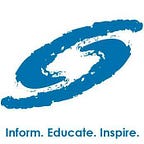How My Grandfather’s Disease Inspired My Love for Science Research
By Arjun Subramaniam, senior at The Harker School and Regeneron Science Talent Search 2017 finalist
My grandfather was diagnosed with Parkinson’s Disease in 2009. At the age of ten, that didn’t mean a whole lot to me. During my visits to India, we would still make our trips to the ice cream store, laughing and chatting away. On the way, he’d share stories from his life — like the time he was a mile away when Gandhi was assassinated or his adventures learning to speak Italian in Milan.
But over the next few years, things started to change. I saw him slowly lose the ability to walk. Our trips to the ice cream store became more infrequent, and he struggled to do everyday tasks that were so easy for him on my previous visits.
I became determined to understand why.
A simple Google search: “What is Parkinson’s,” started me off. Trying to understand everything about the disease, I dug through medical pages, news articles — even journal papers full of unfamiliar jargon and complex protocols.
Slowly, I began to connect the dots. Nobody knew what ultimately caused Parkinson’s, but the culprit was a malfunctioning protein that formed large, toxic clumps in the brain and caused breakdown of motor skills. If we could target that protein, the idea went, we could cure Parkinson’s. Yet all efforts had been unsuccessful thus far. And so, with all the audacity of my 14 years, I decided to take on the challenge.
In my freshman year of high school, I joined a lab at Stanford and that became my first ever science research project. My goal was to use computational screening methods to search for drugs that could destroy the protein, which I would then test in live cells.
Turns out, the second part was easier said than done. After finding several promising drug molecules on my computer, I spent hours poring over my cells like an overeager parent, as each molecule stubbornly refused to kill the protein. With every negative result, I began to lose hope. Finally, after meeting little success for more than a year, my professor eventually brought my project to a disappointing close.
When I went back to India the following summer, I found that even a simple conversation with my grandfather was now a struggle. Filled with new determination, I returned to school and proposed a rather wild idea to my research teacher, Mr. Spenner: What if we could translate thoughts into words? He encouraged me to go for it.
With Mr. Spenner’s help, I brought my school’s old EEG machine to life and recorded my friends’ brain waves, trying to identify what letter of the alphabet they were thinking about. Through books and courses on data science, I learned the tools I needed to find patterns in brain waves. I spent months designing an algorithm to find the hidden voice in the signal, motivated by helping my grandfather — and people like him — communicate again. The results I achieved were modest, but they certainly got me excited.
Since then, I’ve continued to use computer modeling to go after real-world challenges. When I joined the Simons Research Program last summer, I was paired with and spent six weeks working with a professor at Stony Brook University. While he was trying to understand how our immune system designs antibodies, I aimed for a slightly different goal. Could we mimic our immune system to design antibody therapies that could target diseases inside our body? And that’s what I did, building a machine learning model to design antibodies that bind extremely well to their targets. I was thrilled to be selected as a Regeneron Science Talent Search Finalist for this project, and even more excited to learn that Regeneron also develops antibody therapies!
Ultimately, I want to solve problems that truly touch people’s lives, and that drives my passion for science. If I could give one piece of advice to kids that like science research, do it because you like it, not for an award. Pursue a question because you want to know the answer, go after a problem because you want to solve that problem. And know that there’s a team of people who will always support you. I wouldn’t have found a love for research without my mother, driving me three hours a week to that Stanford lab for more than a year. I’m also thankful for Mr. Spenner, who supported and encouraged me to try a nearly impossible challenge in reading brain waves.
On October 17th of last year, in the midst of my college applications, my grandfather passed away. He was, and continues to be my inspiration to make a difference in the world through science. I may not hear any more of his stories, but I still clearly remember something he said to me: “Even if the research you’re doing doesn’t help me, I am happy it will at least help somebody.” I hold those words close to my heart — because in the end, helping people is what will make me happy as well.
